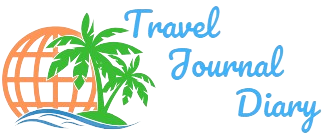ABC Short Trek—a compact version of the Annapurna Base Camp experience—is perfect for trekkers looking to reach the iconic Annapurna Base Camp (4,130 m) in just 5–7 days. Below is a comprehensive cost guide to help you plan your budget, whether you’re trekking independently or booking a package.
1. Permits & Legal Fees
All trekkers in the Annapurna region require:
- Annapurna Conservation Area Permit (ACAP): USD 30 (approx. NPR 3,000) for foreign nationals
- TIMS Card (Trekkers’ Information Management System): USD 20 per solo trekker or USD 10 in groups
Together, permits cost about USD 50–55 per person.
2. Guide & Porter
Although not always mandatory, a licensed guide and porter significantly enhance safety, navigation, and local support:
- Guide: USD 25–35 per day
- Porter: USD 18–25 per day
- Guide-porter combined: USD 30–40 per day
For a typical 6‑day trek, expect:
- Guide cost: USD 150–210
- Porter cost: USD 108–150
- Total: USD 258–360
3. Accommodation & Meals
Teahouse lodging along the trek ranges:
- Lower elevation: USD 4–10 per night (NPR 500–1,500)
- Higher villages near ABC: USD 10–25 per night (NPR 1,500–3,000)
Meals typically cost USD 10–30 per day, rising slightly at higher altitudes. Budget around USD 20–30/day for breakfast, lunch, and dinner .
For a 6‑day itinerary:
- Accommodation: USD 30–150
- Meals: USD 120–180
4. Equipment (Rental or Purchase)
If you don’t already own gear, you can rent or buy locally:
- Sleeping bag: USD 1–3/day
- Down jacket: USD 50–200
- Trekking boots/backpack: USD 50–150 each
- Trekking poles: USD 20–40
Total equipment cost: USD 150–600, depending on purchase vs. rental and quality desired
5. Transportation
Costs vary depending on route:
- Pokhara → Siwai/Trailhead by jeep or local bus:
- Shared bus: USD 3–5 (NPR 300–500)
- Private jeep: USD 20–30
- Domestic flight (Kathmandu–Pokhara) optionally costs USD 89–111. This avoids overland travel but is not essential for the ABC short trek cycle
6. Travel Insurance
High‑altitude trekking requires coverage including emergency evacuation:
- USD 50–170, depending on policy and duration
7. Miscellaneous Expenses
Small extras during the trek include:
- Hot shower: USD 2–4
- Phone charging: USD 1–3 per device
- Wi‑Fi: USD 2–5 per session
- Tipping: guides (~USD 5–10/day) and porters (~USD 3–7/day)
Expect a miscellaneous budget of USD 50–100, and add generous tips of around 10–15% of total cost.
8. Sample Budget Breakdown
Budget Package (Group Join, Shared Guide/Porter)
| Item | Approx. Cost (USD) |
| Permits (ACAP + TIMS) | 55 |
| Shared guide & porter | 260 |
| Meals & accommodation (6 days) | 150 |
| Transport (Pokhara + trailhead) | 30 |
| Insurance | 80 |
| Miscellaneous & extras | 75 |
| Estimated Total | ~650 USD |
Mid-range Package (Private Guide/Porter)
| Item | Approx. Cost (USD) |
| Permits | 55 |
| Private guide & porter | 320 |
| Meals & accommodation | 180 |
| Transport | 50 |
| Insurance | 100 |
| Miscellaneous & tips | 100 |
| Estimated Total | ~805 USD |
Minimal Independent Trek (No Guide/Porter)
If local regulations allow and you’re self-reliant:
- Permits: 55
- Meals & lodges: 170
- Track transport/insurance/misc.: 170
- Estimated Total: 400–450 USD
✅ Key Takeaways
- Permits: USD 50–55/person
- Guide & porter: USD 258–360 (group/shared), USD 320+ (private)
- Accommodation & meals: USD 20–30/day
- Transport: USD 5–30 depending on vehicle choice
- Insurance: USD 50–170
- Miscellaneous: USD 50–100
Estimated total cost ranges:
- Budget: USD 600–700
- Mid-range private: USD 800–900
- Independent minimalist: USD 400–500
✅ Conclusion
ABC Short Trek Cost varies depending on your trekking style, pace, and comfort level. A fully supported trekking package with guide, porter, meals, accommodation, and permits will typically fall in the range of USD 600–900. If you’re traveling independently, minimalistic but feasible, expect USD 400–500, excluding gear and insurance.
Cost‑saving strategies:
- Trek in group join departures
- Skip private vehicles or helicopter rides
- Rent gear instead of buying
Stick to teahouse meals and shared rooms

